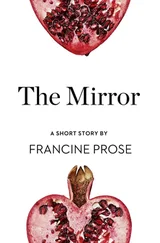Samuel Goodrich - Peter Parley's Own Story. From the Personal Narrative of the Late Samuel G. Goodrich, («Peter Parley»)
Здесь есть возможность читать онлайн «Samuel Goodrich - Peter Parley's Own Story. From the Personal Narrative of the Late Samuel G. Goodrich, («Peter Parley»)» — ознакомительный отрывок электронной книги совершенно бесплатно, а после прочтения отрывка купить полную версию. В некоторых случаях можно слушать аудио, скачать через торрент в формате fb2 и присутствует краткое содержание. Издательство: Иностранный паблик, Жанр: foreign_language, foreign_prose, на английском языке. Описание произведения, (предисловие) а так же отзывы посетителей доступны на портале библиотеки ЛибКат.
- Название:Peter Parley's Own Story. From the Personal Narrative of the Late Samuel G. Goodrich, («Peter Parley»)
- Автор:
- Издательство:Иностранный паблик
- Жанр:
- Год:неизвестен
- ISBN:нет данных
- Рейтинг книги:5 / 5. Голосов: 1
-
Избранное:Добавить в избранное
- Отзывы:
-
Ваша оценка:
- 100
- 1
- 2
- 3
- 4
- 5
Peter Parley's Own Story. From the Personal Narrative of the Late Samuel G. Goodrich, («Peter Parley»): краткое содержание, описание и аннотация
Предлагаем к чтению аннотацию, описание, краткое содержание или предисловие (зависит от того, что написал сам автор книги «Peter Parley's Own Story. From the Personal Narrative of the Late Samuel G. Goodrich, («Peter Parley»)»). Если вы не нашли необходимую информацию о книге — напишите в комментариях, мы постараемся отыскать её.
Peter Parley's Own Story. From the Personal Narrative of the Late Samuel G. Goodrich, («Peter Parley») — читать онлайн ознакомительный отрывок
Ниже представлен текст книги, разбитый по страницам. Система сохранения места последней прочитанной страницы, позволяет с удобством читать онлайн бесплатно книгу «Peter Parley's Own Story. From the Personal Narrative of the Late Samuel G. Goodrich, («Peter Parley»)», без необходимости каждый раз заново искать на чём Вы остановились. Поставьте закладку, и сможете в любой момент перейти на страницу, на которой закончили чтение.
Интервал:
Закладка:
About that time there came to our village a man by the name of Jesse Skellinger, an Englishman, and chaisemaker by trade. My father engaged him to build him a chaise. A bench was set up in our barn, and certain trees of oak and ash were cut in our neighboring woods. These were sawed and seasoned, and shaped into wheels and shafts. Thomas Hawley, half blacksmith, and half wheelwright, was duly initiated, and he cunningly wrought the iron necessary for the work. In five months the chaise was finished, with a standing top; greatly to the admiration of our family. What a gaze was there, as this vehicle went through Ridgefield street upon its first expedition!
This was the beginning of the chaise-manufactory in Ridgefield, which has since been a source of large revenue to the town. Skellinger was engaged by Elijah Hawley, who had formerly done something as a wagon-builder; and thus in due time an establishment was founded, which for many years was noted for the beauty and excellence of its pleasure vehicles.
CHAPTER VI
THE UPPER AND LOWER CLASSES OF RIDGEFIELD – MASTER STEBBINS AND HIS SCHOOL – WHAT IS A NOUN? – DEACON BENEDICT AND HIS MAN ABIJAH – MY LATIN ACQUIREMENTS – FAMILY WORSHIP – WIDOW BENNETT – THE TEMPLE OF DAGON.
Ridgefield, as well as most other places, had its Up-town and Down-town; terms which have not unfrequently been the occasion of serious divisions in the affairs of Church and State. In London this distinction takes the name of West End and the City. The French philosophers say that every great capital has similar divisions; West End being always the residence of the aristocracy, and East End of the canaille .
Ridgefield, being a village, had a right to follow its own whim; and therefore West Lane, instead of being the aristocratic end of the place, was really rather the low end. It constituted, in fact, what was called Down-town , in distinction from the more eastern and northern section, called Up-town . In this latter portion, and about the middle of the main street, was the Up-town school, the leading seminary of the village; for at this period it had not arrived at the honors of an academy. At the age of ten years I was sent here, the institution being then, and for many years after, under the charge of Master Stebbins. He was a man with a conciliating stoop in the shoulders, a long body, short legs, and a swaying walk. He was at this period some fifty years old, his hair being thin and silvery, and always falling in well-combed rolls over his coat-collar. His eyes were blue, and his dress invariably of the same color. Breeches and knee-buckles, blue-mixed stockings, and shoes with bright buckles, seemed as much a part of the man as his head and shoulders. On the whole, his appearance was that of the middle-class gentleman of the olden time; and he was, in fact, what he seemed.
This seminary of learning for the rising aristocracy of Ridgefield was a wooden edifice, thirty by twenty feet, covered with brown clapboards, and, except an entry, consisted of a single room. Around, and against the walls, ran a continuous line of seats, fronted by a continuous writing-desk. Beneath were depositories for books and writing materials. The centre was occupied by slab seats, similar to those of West Lane. The larger scholars were ranged on the outer sides, at the desks; the smaller fry of abecedarians were seated in the centre. The master was enshrined on the east side of the room, and, regular as the sun, he was in his seat at nine o'clock, and the performances of the school began.
According to the Catechism, which we learned and recited on Saturday, the chief end of man was to glorify God and keep His commandments; according to the routine of this school, one would have thought it to be reading, writing, and arithmetic, to which we may add spelling. From morning to night, in all weathers, through every season of the year, these exercises were carried on with the energy, patience, and perseverance of a manufactory.
Master Stebbins respected his calling: his heart was in his work; and so, what he pretended to teach, he taught well. When I entered the school, I found that a huge stride had been achieved in the march of mind since I left West Lane. Webster's Spelling-book had taken the place of Dilworth, which was a great improvement. The drill in spelling was very thorough, and applied every day to the whole school. I imagine that the exercises might have been amusing to a stranger, especially as one scholar would sometimes go off in a voice as grum as that of a bull-frog, while another would follow in tones as fine and piping as those of a peet-weet. The blunders, too, were often very ludicrous; even we children would sometimes have tittered, had not such an enormity been certain to have brought out the birch. As to rewards and punishments, the system was this: whoever missed, went down; so that perfection mounted to the top. Here was the beginning of the up and down of life.
Reading was performed in classes, which generally plodded on without a hint from the master. Nevertheless, when Zeek Sanford – who was said to have "a streak of lightning in him" – in his haste to be smart, read the 37th verse of the 2nd chapter of the Acts, – "Now when they heard this, they were pickled in their heart," – the birch stick on Master Stebbins's table seemed to quiver and peel at the little end, as if to give warning of the wrath to come. When Orry Keeler – Orry was a girl, you know, and not a boy – drawled out in spelling, "k – o – n, kon , s – h – u – n – t – s, shunts , konshunts," the bristles in the master's eyebrows fidgeted like Aunt Delight's knitting-needles. Occasionally, when the reading was insupportably bad, he took a book, and himself read as an example.
Master Stebbins was a great man with a slate and pencil, and I have an idea that we were a generation after his own heart. We certainly achieved wonders in arithmetic, according to our own conceptions, some of us going even beyond the Rule of Three, and making forays into the mysterious regions of Vulgar Fractions.
But, after all, penmanship was Master Stebbins's great accomplishment. He had no pompous lessons upon single lines and bifid lines, and the like. The revelations of inspired copy-book makers had not then been vouchsafed to man. He could not cut an American eagle with a single flourish of a goose-quill. He was guided by good taste and native instinct, and wrote a smooth round hand, like copper-plate. His lessons from A to &, all written by himself, consisted of pithy proverbs and useful moral lessons. On every page of our writing-books he wrote the first line himself. The effect was what might have been expected – with such models, patiently enforced, nearly all became good writers.
Beyond these simple elements, the Up-town school made few pretensions. When I was there, two Webster's Grammars and one or two Dwight's Geographies were in use. The latter was without maps or illustrations, and was, in fact, little more than an expanded table of contents, taken from Morse's Universal Geography – the mammoth monument of American learning and genius of that age and generation. The grammar was a clever book, but I have an idea that neither Master Stebbins nor his pupils ever fathomed its depths. They floundered about in it, as if in a quagmire, and after some time came out pretty nearly where they went in, though perhaps a little confused by the din and dusky atmosphere of these labyrinths.
Let me here repeat an anecdote, which I have indeed told before, but which I had from the lips of its hero, a clergyman, of some note thirty years ago, and which well illustrates this part of my story. At a village school, not many miles from Ridgefield, he was put into Webster's Grammar. Here he read, " A noun is the name of a thing – as horse, hair, justice ." Now, in his innocence, he read it thus: " A noun is the name of a thing – as horse-hair justice ."
Читать дальшеИнтервал:
Закладка:
Похожие книги на «Peter Parley's Own Story. From the Personal Narrative of the Late Samuel G. Goodrich, («Peter Parley»)»
Представляем Вашему вниманию похожие книги на «Peter Parley's Own Story. From the Personal Narrative of the Late Samuel G. Goodrich, («Peter Parley»)» списком для выбора. Мы отобрали схожую по названию и смыслу литературу в надежде предоставить читателям больше вариантов отыскать новые, интересные, ещё непрочитанные произведения.
Обсуждение, отзывы о книге «Peter Parley's Own Story. From the Personal Narrative of the Late Samuel G. Goodrich, («Peter Parley»)» и просто собственные мнения читателей. Оставьте ваши комментарии, напишите, что Вы думаете о произведении, его смысле или главных героях. Укажите что конкретно понравилось, а что нет, и почему Вы так считаете.












